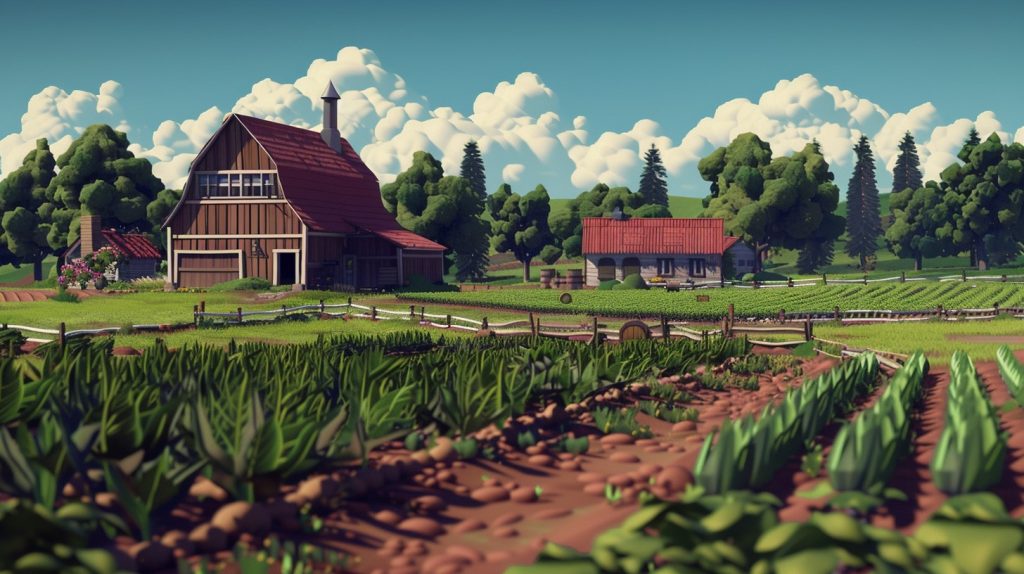Understanding Sustainability in the Food Industry
The environmental impact of sustainability in the food industry is a crucial aspect that requires careful examination. Sustainability practices within food production, as highlighted by experts like Ruby Angurana, emphasize the need for responsible resource management. Implementing irrigation technology and biofuels can significantly reduce the industry’s footprint value. Sustainable production standards such as reduced pesticide use, food safe greases and diversified crop cultivars, are essential in safeguarding natural resources and ecosystem services payments. By shifting towards eco-friendly practices and embracing diversity in agriculture, growers can mitigate the negative impact of monocrops and chemical fertilizers. This focus on sustainability and environmental impact in the food industry not only benefits the planet but also ensures a healthier future for all.

The Concept Of Sustainability In Food Production
The sustainability and environmental impact in the food industry are crucial considerations in modern food production. It encompasses a wide spectrum of practices and initiatives aimed at reducing waste, minimizing carbon footprint, and promoting energy efficiency. From reducing methane emissions in livestock production to improving soil carbon sequestration through sustainable agriculture practices, sustainability in food production aims to address climate change impacts and preserve habitats for various animal species.
Water quality regulation and consistency are central to sustainable food production practices. Producer models that focus on efficient water use and waste studies play a significant role in reducing the environmental impact of the food industry. Examples of sustainable water management practices include reducing fertilizer nitrogen runoff, which can lead to pollinator declines and pollutant contamination in drinking water supplies. By implementing sustainable water practices, the food industry can help alleviate pressure on freshwater resources and contribute to a more environmentally friendly approach to food production.
Examining The Role Of The Food Industry In Sustainability
The food industry plays a pivotal role in shaping sustainability and environmental impact. From the production of crops to the rearing of dairy cows, each step along the food value chain holds significance in influencing sustainability efforts. With the issuance of warnings on issues such as contaminant concentrations in drinking water sources due to agricultural practices, the industry is called upon to display leadership qualities and drive innovation towards more sustainable methods. By focusing on reducing carbon footprints and exploring biofuel alternatives, the food industry movement can pave the way for a more environmentally conscious future.
In recent years, the focus on sustainability measurement systems and the use of LCA methodologies in assessing food product greenhouse gas emissions have gained momentum within the food industry. Stakeholders in food systems must navigate uncertainties and address threats such as extinction risks to bird populations and ecosystem attributes. The adoption of sustainable practices, such as implementing ammonia emission controls and reducing pesticide usage through certification programs, can contribute to lowering the industry’s environmental impact. By embracing sustainability efforts and developing strategies to minimize carbon footprints, the food industry can actively partake in preserving the environment for future generations.
Impact of Agriculture on Environment
Agriculture’s impact on the environment is a topic of significant importance due to its implications for sustainability and environmental impact in the food industry. The health risks associated with agricultural practices, such as the use of pesticides and fertilizers, can have severe consequences on both human health and ecosystems. Data from the Department of Agriculture reveals that mass-production farms contribute to a total of 61% of greenhouse gas intensities in the food industry. Furthermore, the growth factors involved in agriculture, such as energy, water resources, and land-use, play a crucial role in shaping the environmental footprint of food production. Strategies for sustainable cultivation, including regenerative practices and biodiversity conservation, are essential to mitigate the repercussions of intensive farming on nature and food supplies.
The Implication of Livestock Rearing On The Environment
Livestock rearing plays a significant role in the sustainability and environmental impact of the food industry. The implications of this practice extend to various aspects, including greenhouse gas emissions intensity, animal welfare concerns, and land-use efficiency. Research shows that livestock production, particularly in beef production, can lead to high emissions intensity and contribute to environmental pressures. Decision-making processes in animal agriculture need to consider these factors to ensure responsible resource management and sustainability in the food industry. Additionally, efforts to address issues such as animal welfare concerns and emissions intensity are imperative for the future of sustainable food production.
Understanding the environmental implications of livestock rearing goes beyond the surface level of meat production. It involves a complex interplay of factors such as soil erosion rates, greenhouse gas emissions, and water pollution. Analysts and researchers are diving deep into these interconnected issues to find solutions that balance food security with environmental preservation. By looking at the breakdown products of livestock operations and their impact on ecosystems, we can make informed decisions to mitigate the adverse effects on the environment. This holistic approach is crucial for the food industry to meet the demands of a growing society while keeping sustainability and environmental responsibility at the forefront.
Discussing Agriculture Food Waste
Agriculture food waste is a significant issue with far-reaching implications for sustainability and the environmental impact in the food industry. Studies have shown that a considerable amount of food is lost or wasted during production processes and distribution, leading to substantial resource depletion and environmental harm. The disposal of food waste not only contributes to methane emissions but also affects soil bulk density and nutrient cycling, further exacerbating environmental challenges.
Efforts to address agriculture food waste require a holistic approach that involves collaboration among various stakeholders in the food industry. By implementing innovative solutions such as improving production process traits and enhancing disease management practices, the sector can reduce food loss and its environmental consequences. Additionally, raising consumer awareness about the impact of food waste on the environment and promoting sustainable consumption habits are crucial steps towards mitigating the detrimental effects of agriculture food waste on the ecosystem.








